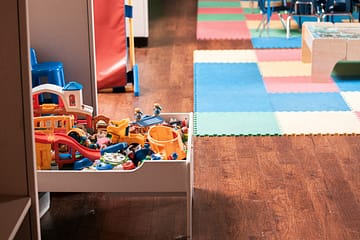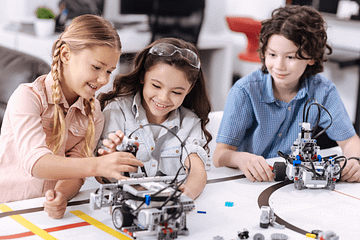You are a parent with a neurodiverse child and want to purchase them the right gift. One that they will play with rather than chuck in the corner after 5 minutes. But with so many possibilities available online, how do you know where to start? What characteristics make a toy appropriate for your particular child? We understand that shopping online may be time-consuming when all you want is to locate that one perfect item. Take a deep breath; we have you covered. With some professional advice and crucial items to check for, you’ll be able to purchase online swiftly and confidently. Say goodbye to tedious scrolling and welcome to pure recreational delight. We’ll make sure you discover toys that your child will enjoy, not simply like.
The Advantages of Getting Expert Advice for Online Toy Shopping
Getting Recommendations:
One of the most significant advantages of obtaining expert help is receiving individualized toy suggestions based on your child’s specific requirements and interests. Experts understand child development and may recommend toys that are appropriate for your kid’s age, talents, and interests. This ensures that you make educated purchases that will engage and benefit your child. For neurodiverse youngsters, selecting the correct toys might be difficult. Experts in inclusive play have considerable understanding of toys intended to meet a variety of cognitive, physical, and sensory demands.
Save time and avoid disappointment:
With so many toy selections accessible online, it’s easy to become overwhelmed. Experts can help you streamline your search, saving you valuable time and energy. Their advice helps you avoid making spontaneous purchases or being disappointed by toys that do not live up to your expectations.
Staying current with trends and safety:
Toy specialists are up to date on current trends, materials, and safety regulations. They may help you avoid potentially dangerous or low-quality toys, ensuring that your child’s purchases are both enjoyable and safe. Seeking professional assistance can not only help you make better toy decisions, but it will also provide you with useful insights into how to nurture your child’s growth via play. It’s a worthwhile investment for your child’s happiness, development, and general well-being.
How to Get Reliable Toy Recommendations and Reviews
Look for trustworthy sources:
When it comes to choosing toys for your neurodiverse child, you can’t just read random reviews online. It is essential to obtain advice from credible sites specializing in toys and items for children with needs. Look for well-known organisations, therapists, or blogs with experience in this field.
Check for Hands-on Experience:
The finest toy reviews come from people who have actually used the toys with their children. Look for thorough descriptions of how the item works, what skills it helps develop, and if the youngster was entertained. First-hand reports from parents with neurodiverse children are essential.
Consider Your Child’s Needs:
Every child is unique, so a toy that works well for one may not be suitable for another. As you read evaluations, consider your child’s individual talents, interests, and obstacles. Look for toys that are appropriate for their developmental stage and can help them gain essential abilities.
Join Online Communities:
There are several online communities and forums where parents of neurodiverse children may exchange toy ideas and advise. These can be valuable sources of knowledge from folks who actually understand what you’re going through. Do not be hesitant to ask questions and learn from other people’s experiences.
Safety Considerations:
Avoiding Toxic or Dangerous Toys. When shopping for toys online, look for any red flags that indicate possible safety issues. Lead paint, small detachable parts that might cause choking, and combustible materials are all strictly prohibited. It’s critical to be a wise, informed shopper since your child’s safety is at risk.
Benefits of Professional Guidance: Expertise in Child Development.
When it comes to neurodiverse children and their toy requirements, expert advice can be crucial. Child development professionals have a thorough understanding of the subtleties of many disorders, ranging from autism to ADHD and beyond. They understand which toys promote important abilities like as motor coordination, problem solving, and social engagement.
Every child is unique, with own talents, problems, and interests. A specialist can evaluate your child’s individual needs and give tailored toy choices. This personalized strategy guarantees that you invest in playthings that both interest and benefit your child.
The vast number of toys available online may be confusing for any parent. But experts cut through the clutter. Their carefully chosen collections make it easier to choose acceptable, high-quality toys. Professionals can advise you on the most cost-effective solutions and help you manage your budget effectively. They may even inform you about offers and discounts that you might otherwise miss.
Practical Tips for Toy Selection.
Consider sensory needs:
Every child is unique, even those with sensory processing abnormalities. Pay special attention to your child’s sensory preferences and demands. Do particular textures, noises, or visual patterns appear overstimulating or calming? Look for toys that give appropriate sensory stimulation.
Soft, squeezable fidget toys can provide relaxing tactile input.
Musical instruments allow for independent aural exploration.
Toys with flashing lights or strong contrast may be too much for certain children.
Encourage Developmental Skills:
The best toys encourage fine motor abilities, problem-solving, and creativity. Look for open-ended activities that encourage many sorts of constructive play. Building blocks, play dough, and arts and crafts items promote creativity and dexterity.
Puzzle and strategy games enhance cognitive capacities. Adaptive toys with bigger knobs or switches can help make fun more accessible.
Keep Interests in Mind:
What attracts your child? Lean into their passionate interests whenever feasible. Vehicle enthusiasts may appreciate vehicle ramps or rail layouts. Children that are interested in animals may want to look into plush or plastic figures. Engagement is maintained by rotating new toy possibilities based on developing passions. But also bring novelty: a new toy may create an intriguing new area of interest.


